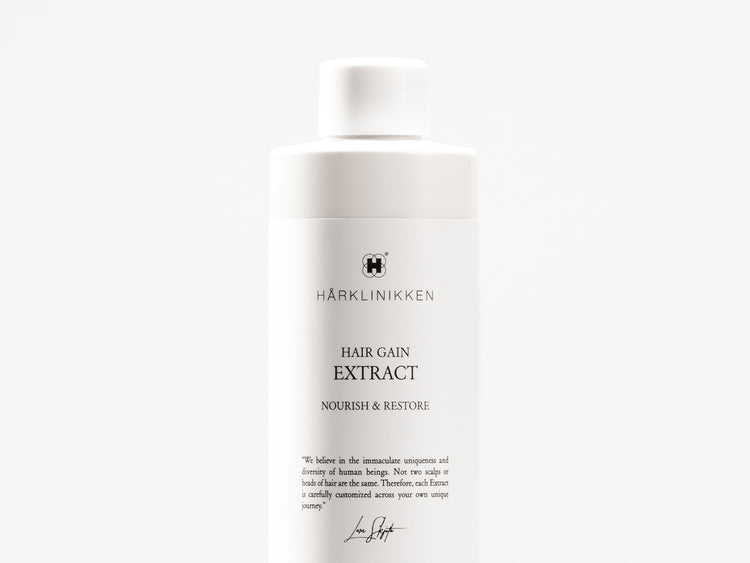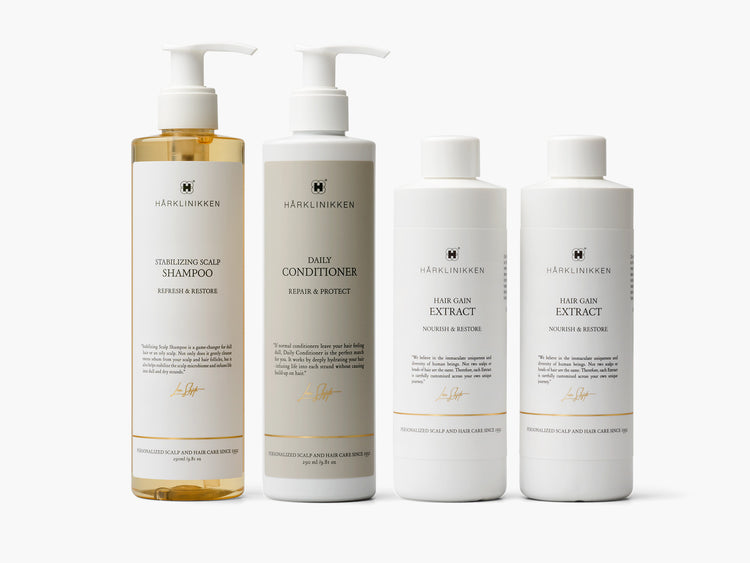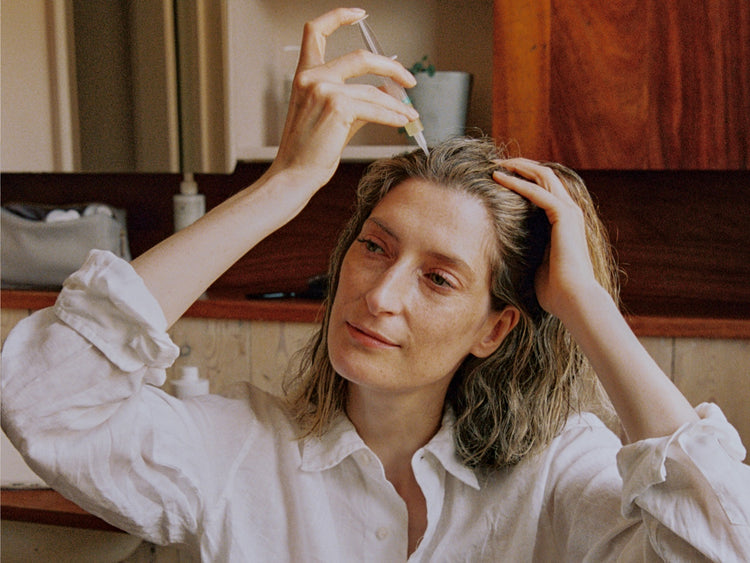All of the body’s 50+ hormones serve a function, regulating everything from metabolism to moods. It’s normal for your hormones to fluctuate for a variety of reasons from ageing to stress, different life stages (like puberty, pregnancy, perimenopause and menopause), mental health, diet and more. But when you experience a prolonged hormonal imbalance, various issues can arise – one being hair thinning and loss. Because they play a key role in the hair growth cycle, hormones are a common cause of hair changes, thinning and loss.
What are hormones?
Hormones are biochemical signaling molecules that are often referred to as the body’s “messengers” because they travel via the bloodstream, helping to coordinate and regulate different functions.
Which hormones can impact your scalp and hair?
All genders have the same hormones within their bodies, but at different levels at various phases of life. These are some that can affect your scalp and hair health:
- Androgens
This group of hormones includes testosterone, dihydrotestosterone (DHT), dehydroepiandrosterone and androstenedione. Imbalances in testosterone and DHT can lead to increased facial hair but decreased hair growing from your scalp. DHT sensitivity has been widely linked to hair follicle miniaturisation
- Oestrogens
Often listed as a singular hormone, there are actually three oestrogens (or estrogen) – oestradiol oestrone and oestriol – that play varying roles in the hair growth cycle. Many people experience changes to hair during perimenopause and menopause when oestrogen levels typically decline.
- Thyroid hormones
Playing a key role in hair follicle function, thyroid hormone (thyroxine, triiodothyronine, calcitonin and the parathyroid hormone) imbalances can lead to hair shedding, thinning and loss. People experiencing prolonged hyperparathyroidism or hypothyroidism have often noticed increased hair shedding, thinning or loss.
- Insulin
Crucial to your metabolism and in regulating blood sugar levels, insulin also plays a role in cell proliferation and hair follicle function. People with PCOS and Type 2 Diabetes also sometimes experience insulin resistance, which can result in imbalanced androgen levels. Those with Type 1 Diabetes may mean the body is less able to produce insulin, which can trigger telogen effluvium.
- Progesterone
A hormone produced primarily by the ovaries; progesterone works to balance oestrogen. While fluctuations are normal, long-term imbalances can negatively affect hair growth.
- Cortisol
The frequently discussed steroid hormone, cortisol regulates the sleep cycle and is tied to inflammation and metabolim. While cortisol levels fluctuate throughout the day, prolonged high cortisol can be a symptom of stress and can lead to hair thinning and loss.
How to tell if your hair loss and thinning is hormonal
Many of us can identify signs of hair thinning, like wispy hairs along the temple to a widened part, receding hairline and overall loss of density. Determining the cause is oftentimes less straightforward. Some factors to consider are:
- Family history of hair loss
While hair loss doesn’t always run in the family (and there are plenty of myths about this), it’s worth exploring the chance of a genetic predisposition to hair loss and thinning. - Timing and triggers
While most people notice hair thinning after it’s been occurring for a while, it’s useful to consider the timing, as it might coincide with significant changes like stress, illness, surgery, pregnancy, menopause and more. - Associated factors
Keep an eye on other bodily changes that might also indicate you’re experiencing a hormonal fluctuations like acne, weight gain, skin and scalp changes, mood swings, disturbed sleep, facial hair growth or irregular menstruation.
What to do if you suspect your hair thinning and loss is hormonal
If you are concerned about a hormonal imbalance, make an appointment with your doctor, as some imbalances can signal serious conditions. When it comes to scalp and hair health, we recommend drinking plenty of water, eating a balanced diet, getting sufficient sleep and trying to reduce stress. You can do all those things in the lead up to (and beyond) your consultation with one of our Hair Specialists.
What happens at a Hårklinikken consultation?
At your initial consultation, your Hair Specialist asks questions about different factors that affect your scalp and hair health – like your current routine, lifestyle, stress levels and more. Next, they analyse your scalp and hair condition while looking for patterns of hair loss and thinning. They do this by assessing with the naked eye, as well as with a magnifying lamp and the scalp camera. Whether your hair loss is hormonal or caused by stress, ageing, genetics or something else, your Hair Specialist will gather all the information necessary to create a custom regimen that suits your specific requirements. From hand-blending your Hair Gain Extract to selecting your cleansing, hydrating and styling products, your Hair Specialist will design a treatment plan that promotes stronger, healthier hair growth. At follow-up consultations, your Hair Specialist will continue adjusting your custom Extract and product regimen to ensure you continue achieving the hair you want.

Unsure where to start?
We only accept candidates who we believe we can help, which is why our online Hair Assessment is the best place to start. Based on your results, you will either qualify for immediate treatment or we will organise a consultation.




